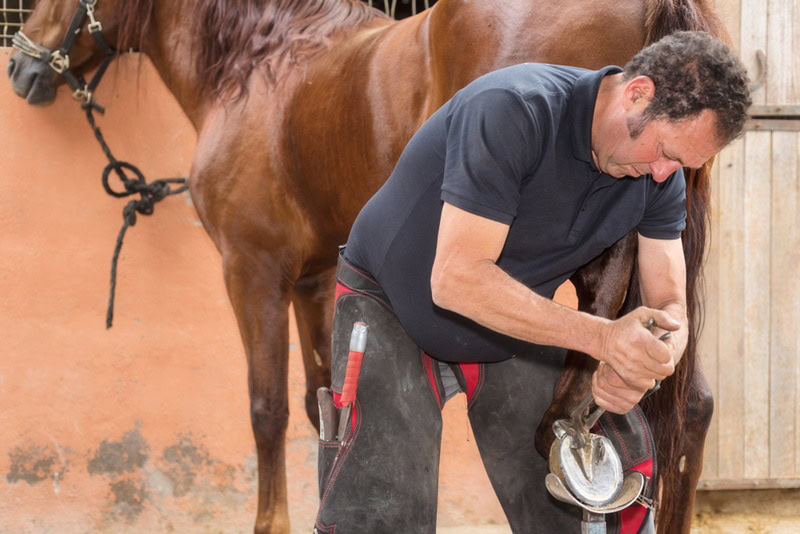VET APPROVED

The information is current and up-to-date in accordance with the latest veterinarian research.
Learn more »Click to Skip Ahead
If you’re a parent to an anxious or easily frightened cat, you’re likely willing to give anything a shot that might soothe them at rough times. In recent years, more and more cat parents have been trying out calming collars, which are supposed to reduce stress and fear in cats, but do they actually work? So far, there isn’t enough scientific evidence to support the effectiveness of calming collars.
In this post, we’ll explore what calming collars are, how they work, and share some tips on how to calm your stressed, anxious cat.

How Do Calming Collars Work?
When nursing, mother cats produce pheromones that help soothe their kittens and help them to feel safe. Calming collars are infused with synthetic pheromones supposed to replicate this calming effect. These collars are designed to help minimize stress in cats and reduce problem behaviors associated with stress, such as scratching and urinating outside the litter box/marking.
Do Calming Collars Actually Work?
Current scientific literature has demonstrated that synthetic analogs of feline facial pheromones can effectively improve behavioral issues in cats and promote a greater sense of comfort in them. However, this research has been conducted using a specific product available as a diffuser and as a spray, but not as a collar. On the other hand, Dr. Mikel Delgado explains that calming collars work for some cats but not at all for others, so there’s no guarantee they’ll have any effect on your cat.1
Some cat parents might try out calming collars on specific occasions when their cat gets stressed, like when it’s thundering outside or there are fireworks. This is perfectly fine, but if your cat has deeper stress-related or behavioral issues like feline anxiety, calming collars won’t be the only solution for your cat. If your cat is consistently stressed or afraid, they need to be checked out by a vet to find out what’s going on and to get appropriate treatment.

Should I Try a Calming Collar?
If you’d like to give calming collars a go, there’s no reason why you shouldn’t—if they work for your cat, that’s fantastic! That said, some cats don’t take to collars well, especially if they’ve never worn one. If you’re planning on trying a calming collar for the first time, let your cat sniff it and get used to it in their own time before you put it on.
In addition, experts and cat parents are somewhat divided on whether or not cats should wear collars at all due to potential safety hazards like the collar getting caught, for example, on tree branches.
Some collars are designed to be “quick-release”, which means they open up easily if the collar gets caught to prevent injuries to your cat. You might want to consider one of these for peace of mind and also consider only putting the collar on your cat while you’re there to supervise.

How Can I Calm My Stressed Cat?
There are a few things you can try to relax your frightened, stressed-out feline or at least improve their comfort during stressful events.
- Offer a safe, covered place—like a cat condo—with enough room for your cat to stand up in. This is a place they can always go to when they’re afraid.
- If your cat is stressed out, stay close to them but give them plenty of space. Avoid picking them up or cuddling them now (unless they come to you asking for attention), even though it feels like the right thing to do.
- Talk to your cat in a soothing voice—from afar if necessary.
- Keep their essential items like litter boxes and hideouts in the same places and always available. This sense of consistency and routine is soothing to cats.
- If your cat is rubbing up on you or objects, let them. This is their way of marking their territory and it helps them feel safe. If they’re using destructive methods to mark, like scratching, make sure there’s a cat post around that they can unleash their urges on.
- Make sure your cat gets plenty of mental and physical stimulation on a daily basis.
If you are looking for toy recommendations or alternatives to a calming collar, some of our favorite products can be found in the links below. They offer enrichment, aim to soothe anxious or scared cats and encourage a happy and healthy lifestyle for your pet.

Final Thoughts
In short, calming collars might be useful as a temporary solution for some cats, but they simply don’t work for others. If your cat is consistently displaying signs of anxiety or seems frightened or nervous a lot of the time, we highly recommend consulting your vet as there’s likely a deeper issue at play. Your vet can determine what’s causing your cat to stress out and can recommend an appropriate course of action.
See Also:
- How to Calm Your Cat During Fireworks: Tips That Work
- How to Calm a Cat During a Thunderstorm: Tips That Work
- https://www.americanhumane.org/fact-sheet/choosing-a-cat-collar/
- https://pets.webmd.com/features/pet-pheromone-products-for-behavior-problems
- https://www.petsradar.com/advice/calming-cat-collar-tested
- https://www.petmd.com/cat/behavior/6-cat-calming-products-help-ease-cat-anxiety
- https://www.petmd.com/cat/conditions/behavioral/c_ct_fear_phobia_anxiety
- https://us.feliway.com/pages/what-are-cat-pheromones
- https://www.cats.org.uk/help-and-advice/getting-a-cat/choosing-a-cat-collar
- https://www.petmd.com/cat/slideshows/10-helpful-ways-calm-your-cat
Featured Image Credit: Tinka Mach, Shutterstock











